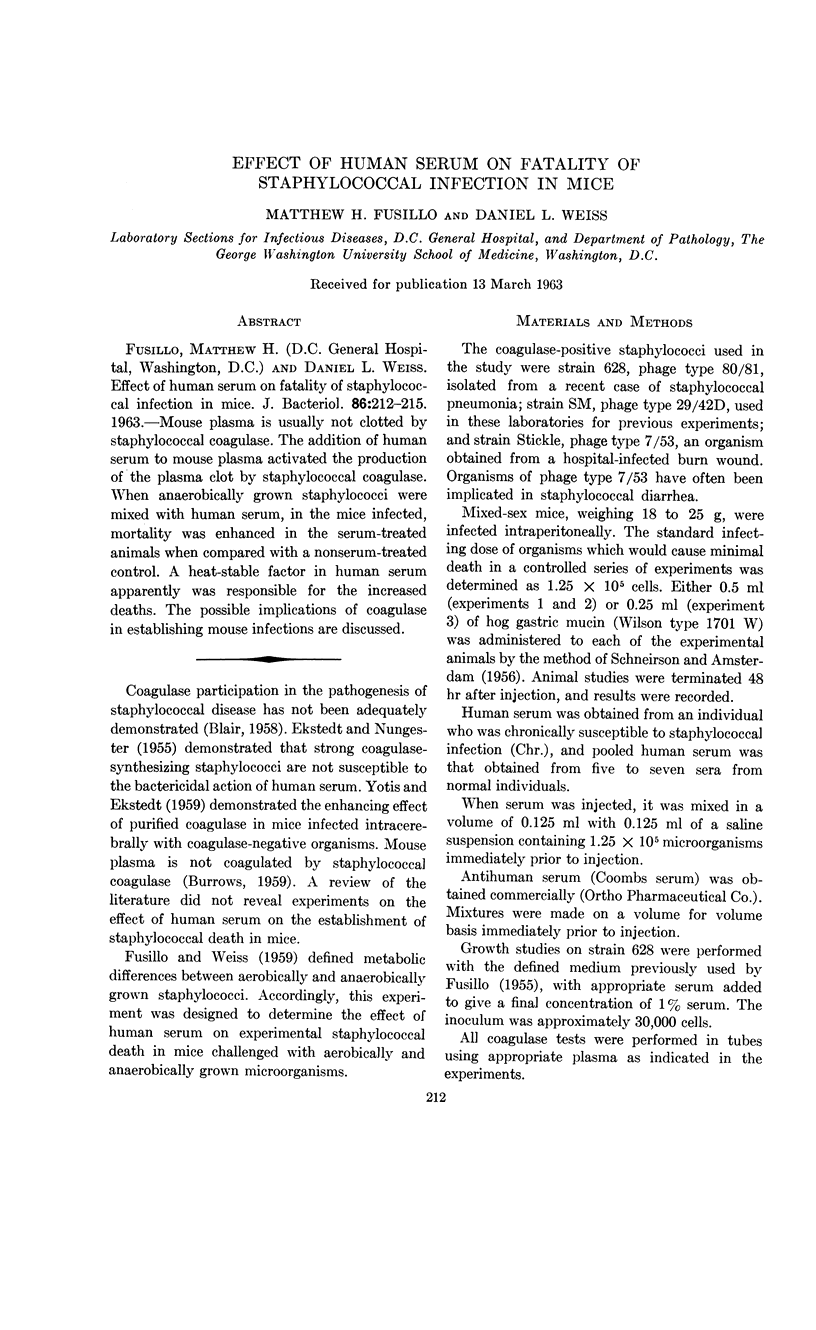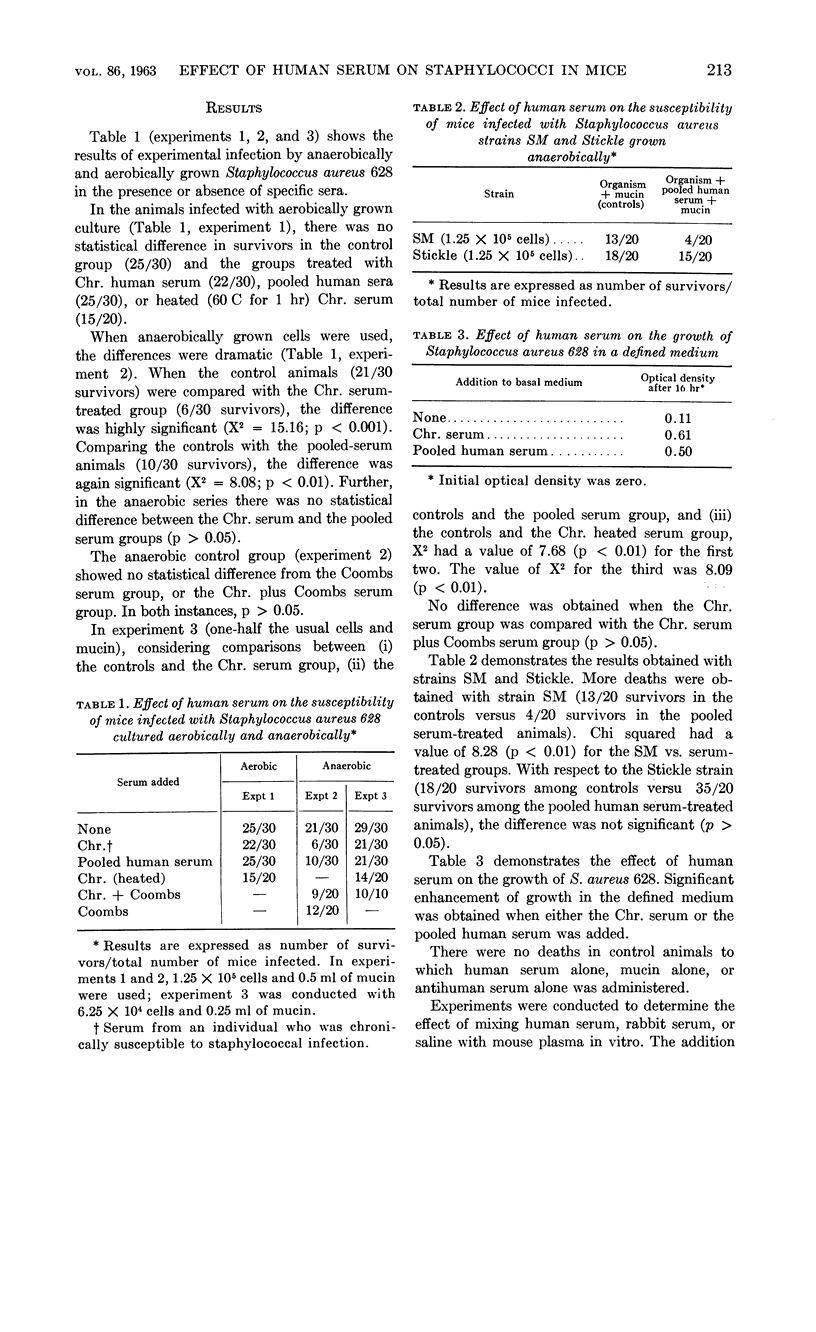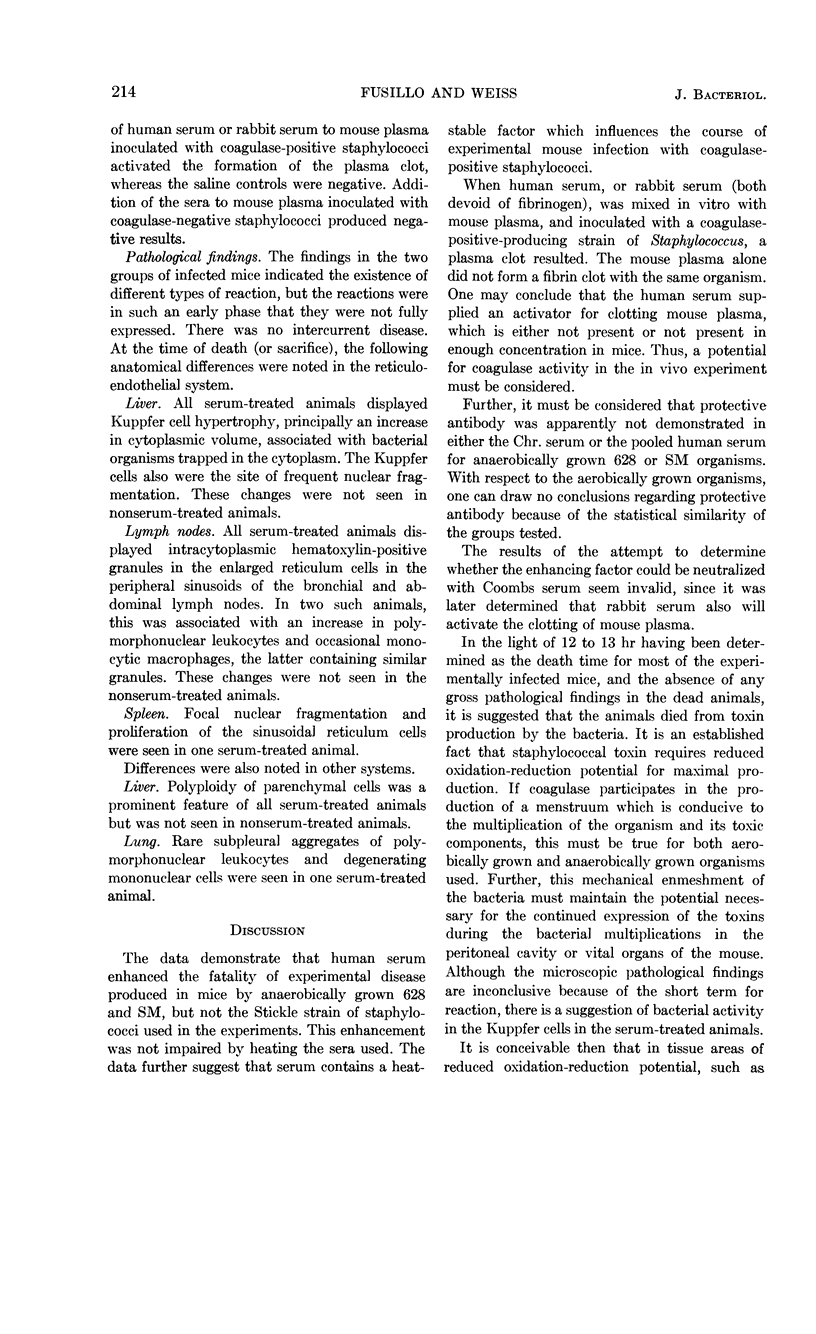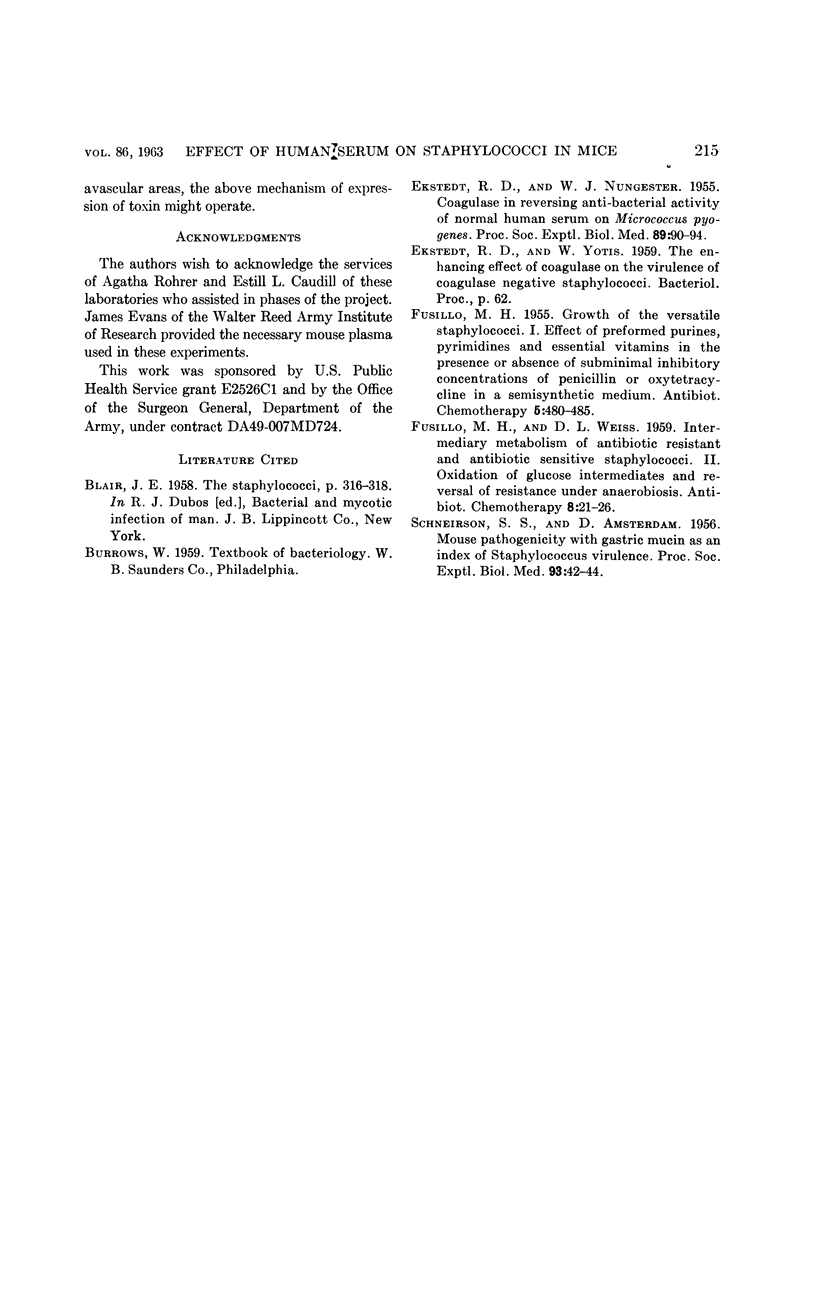Abstract
Fusillo, Matthew H. (D.C. General Hospital, Washington, D.C.) and Daniel L. Weiss. Effect of human serum on fatality of staphylococcal infection in mice. J. Bacteriol. 86:212–215. 1963.—Mouse plasma is usually not clotted by staphylococcal coagulase. The addition of human serum to mouse plasma activated the production of the plasma clot by staphylococcal coagulase. When anaerobically grown staphylococci were mixed with human serum, in the mice infected, mortality was enhanced in the serum-treated animals when compared with a nonserum-treated control. A heat-stable factor in human serum apparently was responsible for the increased deaths. The possible implications of coagulase in establishing mouse infections are discussed.
Full text
PDF



Selected References
These references are in PubMed. This may not be the complete list of references from this article.
- AMSTERDAM D., SCHNEIERSON S. S. Mouse pathogenicity with gastric mucin as an index of Staphylococcus. Proc Soc Exp Biol Med. 1956 Oct;93(1):42–44. doi: 10.3181/00379727-93-22657. [DOI] [PubMed] [Google Scholar]
- EKSTEDT R. D., NUNGESTER W. J. Coagulase in reversing antibacterial activity of normal human serum on Micrococcus pyogenes. Proc Soc Exp Biol Med. 1955 May;89(1):90–94. doi: 10.3181/00379727-89-21724. [DOI] [PubMed] [Google Scholar]


